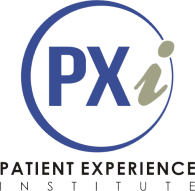Abstract
As a mother of a young adult child with Aspergers syndrome, as well as being a long-term patient myself (liver transplant in 2005), I have extensive experience in both camps. Recently my 20-year old son was admitted to a children’s hospital for a twisted colon that had to be surgically reduced. As the parent of a child with special needs and related physical health-related issues connected to him being on the autism spectrum, I was naturally very concerned about him entering a hospital (perhaps PTSD based on my own experience at moments). Surprising to me, the experience was a very positive one. There were many "practices" I noticed among the nurses and physicians that reduced anxiety, embarrassment and overall stress amongst their young patients and family members who were there for them that ranged from signs on the door, the way they communicated with patient and parent(s), to the manner in which they explained the diagnosis, course of action or treatment and recovery time. All of these concepts or practices could easily be applied to treating adult patients as well. This article will shed light on ways pediatric medicine can positively impact the way we treat all people of all ages who are ill and hospitalized.
Recommended Citation
Michaels N. What medicine can learn from pediatrics: A mother's perspective. Patient Experience Journal. 2018; 5(2):6-9. doi: 10.35680/2372-0247.1278.
Creative Commons License

This work is licensed under a Creative Commons Attribution-Noncommercial-No Derivative Works 4.0 License.
Included in
Health and Medical Administration Commons, Health Policy Commons, Health Services Administration Commons, Health Services Research Commons


